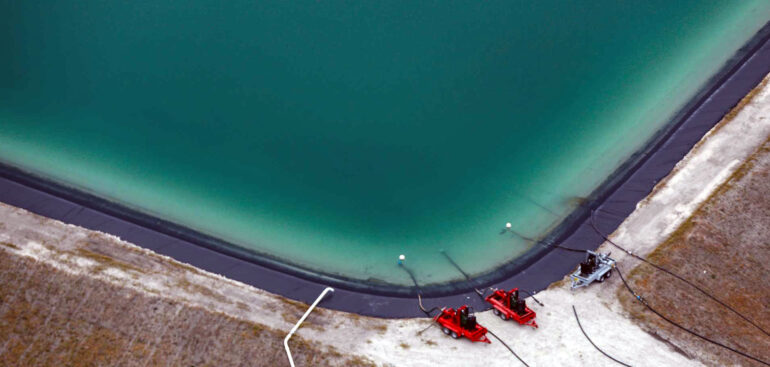In today’s fracking landscape, ensuring well integrity isn’t just about production, it’s the frontline of return on investment (ROI), safety, and sustainable water management. Recent field investigations in the Permian Basin underscore how peracetic acid (PAA) based biocides are no longer an alternative to traditional chemical treatment methods — PAA is the benchmark providing a cleaner kill, faster and more responsibly.
ROI – Lower Costs, Higher Performance
PAA offers striking cost efficiency. Its high selectivity means much lower dosages are needed compared to bleach or chlorine dioxide, which require two to four times more product (epa.gov). This dosage reduction translates directly to lower chemical costs, reduced transportation expenses, and fewer logistical complexities at the well pad.
But the savings don’t stop there. By effectively controlling microbial-induced corrosion and H₂S-related damage, PAA helps prevent premature equipment failures and production slugging—yielding fewer interventions and better asset longevity.
Safety – Smarter Chemistry, Safer Operations
PAA decomposes into benign byproducts—oxygen, water, and acetic acid—so no harmful residuals linger in flowback or recycled frac water. The vinegar‑like odor acts as a natural leak detector during handling. Plus, being liquid at ambient conditions, it avoids the handling dangers posed by chlorine dioxide gas. Overall, PAA reduces exposure risks for field crews and minimizes environmental release threats.
Efficiency – Maximizing Water Management Potential
Effective water recycling is central to sustainable fracking. PAA shines here: it oxidizes iron sulfides and H₂S in flowback tanks, prevents biofilm build-up, and simplifies solids separation—all in one integrated step (researchgate.net). Operators have reported near-100% suspension of microbes and H₂S in recycled frac water, boosting reuse rates and slashing freshwater dependence.
Permian Basin Proof: A Real-World Study
A recent Permian Basin trial assessed oxidizers in real on-site water ponds. Through enzymatic ATP and AMP measurements, PAA showed superior microbial kill and significantly reduced regrowth risk compared to bleach or ClO₂—especially in high‑organic loading scenarios. Its lower reactivity with organics made it a clear winner.
Fracking-Specific Water Benefits
Pre-frac treatment: Treat frac water with PAA to suppress SRBs and biofilms before injection.
Mid-job addition: Inject during frack operations to immediately neutralize microbes and H₂S generated downhole.
Recycling cycles: Post-frac, PAA cleans residual contaminants—enhancing water quality for reuse.
Post-job maintenance: Periodic treatment prevents fouling or corrosion in frac tanks and pipelines.
This integrated approach not only safeguards wellbore integrity but also supports zero-discharge and full-cycle water reuse programs—especially critical in arid regions like the Permian.
Industry Shift to the Cleaner Kill
Major players are taking notice. Recently completed real-world completion fluid tests pitted peracetic acid–based biocides against conventional glutaraldehyde-based programs. The PAA treatment provided a cleaner kill exceeding microbial kill rates while lowering environmental persistence.
Takeaways for Frac Operators
| Benefit | Impact |
| Cost savings | Reduced dosage → supply/logistics savings |
| Safety gains | Safer handling; no toxic residues |
| Operational uptime | Fewer corrosion events and field interventions |
| Water sustainability | Cleaner recycled frac water, less freshwater usage |
The Bottom Line
Peracetic acid isn’t just another biocide—it’s a strategic upgrade. From killing microbes to cutting costs and keeping crews safer, PAA checks every box for modern frac operations.Ready or not, PAA is no longer the alternative – it’s the benchmark.
About Brainerd Chemical Company
Brainerd Chemical Companies mission to safely supply our customers with the solutions they need, the support they want, and the reliability they depend on to meet the challenges they face every day.
Media Inquiries:
Brainerd Chemical Company: 1+ (918) 622-1214
SOURCE: Brainerd Chemical Company.

